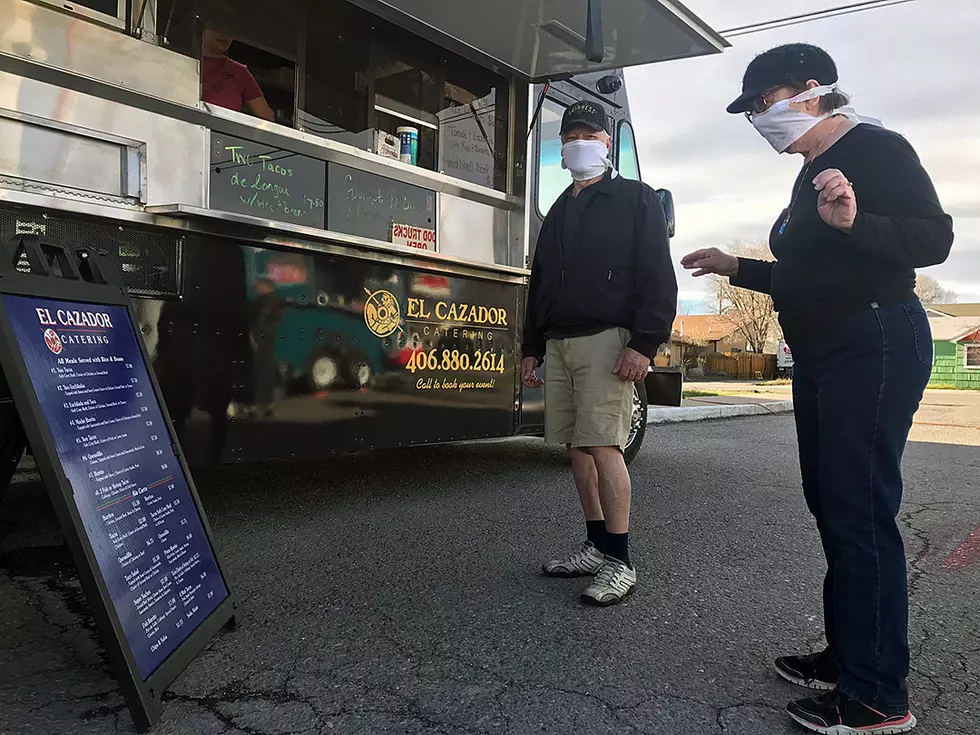
Arizona food truck debate highlights state conflicts
Caitlin Sievers
(Arizona Source) A heated debate over a proposed food truck regulation bill in the Arizona Senate last week shone light on stark differences in opinion between Republicans and Democrats in the legislature when it comes to conflicts of interest.
The debate on the Senate floor happened as lawmakers considered Republican Rep. Kevin Payne’s House Bill 2094, which would allow food trucks to operate in residential areas on private property — if they have permission — and would allow the trucks to ask cities for an exemption from a requirement that they must use a commissary to get rid of their gray water and grease.
Payne owns a food truck and could clearly benefit from the bill, but the rules governing the legislature say that he doesn’t have a conflict of interest.
Under the legislature’s conflict of interest rules, if more than 10 people would benefit from a new law, there is no conflict. And that means a lawmaker like Payne can sponsor a bill about food trucks and vote on it.
Democratic Sen. Raquel Terán, of Phoenix, strongly urged her fellow senators not to vote for the bill, pointing out that Payne owns food trucks and that he’s tried to pass similar food truck deregulation bills multiple times already since he came to the legislature in 2017.
Several cities in Arizona have different regulations for the trucks that they have worked out in negotiations with local food truck owners, Terán said.
Terán’s comments raised the hackles of some Republican senators.
The Arizona Legislature is made up of citizen lawmakers, and who better to write legislation that helps the economy than people directly involved in these industries, said Republican Sen. Janae Shamp, of Surprise.
She added that, as a nurse, she adds her professional knowledge to debates surrounding health care bills without issue.
Republican Sen. Anthony Kern, of Glendale, harshly criticized Terán for her comments.
“That’s a great talking point when you’re trying to snow the public,” Kern said. “But the reality is everyone here has a niche in society that they are an expert in. Shame on the left for trying to degrade a representative who is an expert in his field.”
And Sen. Jake Hoffman, a Republican from Queen Creek, chimed in that the only opposition to the bill during committee meetings came from a union that benefits from food truck commissary use, and that no food truck owners opposed it.
But Hoffman’s comments weren’t correct.
Those who spoke against the bill during a Senate Government Committee meeting on March 22 were members of Union Pochteca, a group of food truck owners who run a commissary that serves local food trucks.
Union Pochteca isn’t a labor union, but a business registered as a limited liability corporation, and its members who spoke during the meeting are food truck owners.
Democratic Sen. Juan Mendez, of Tempe, disagreed with his Republican colleagues.
“We have a member who is using this legislature to pass deregulation that he will directly benefit from,” Mendez said.
Lake Havasu City Republican Sen. Sonny Borrelli then accused Mendez of violating legislative rules by impugning the motives of Payne, and Prescott Republican Sen. Ken Bennett, who was chairing the floor debate, agreed.
The Senate had its own food truck owner who backed the bill: Tucson Republican Sen. Justine Wadsack, who owns the Big Daddy’s Kitchen truck, said she supported the bill 100%.
Mendez also expressed concerns about the potential for gray water, trash and grease potentially being dumped in neighborhoods by owners of trucks who obtain an exemption from using a commissary.
“All that dumping is going to go somewhere else,” Hernan Rivera, a member of Union Pochteca, said during a Senate Government Committee meeting March 22.
Commissaries provide things like parking, potable water fill ups, disposal of gray water and grease, and commercial kitchens.
Salvador Reza, a member of the group of business owners who run Union Pochteca, said he and the other food truck owners had worked with the City of Phoenix for years to ensure that food trucks were run in a safe fashion and in a way that wasn’t a nuisance to people living in residential areas.
Flagstaff Republican Sen. Wendy Rogers asked during the March 22 committee hearing if the members of Union Pochteca should be testifying on the bill, indicating that perhaps they are the ones with the conflict of interest since they benefit from food trucks using their commissary.
“I want to be a good citizen and to do things right,” Rivera said.
The Senate approved HB2094 by a vote of 16-13, along party lines. It will next head to Democratic Gov. Katie Hobbs, who will decide whether to sign it into law or veto it.
